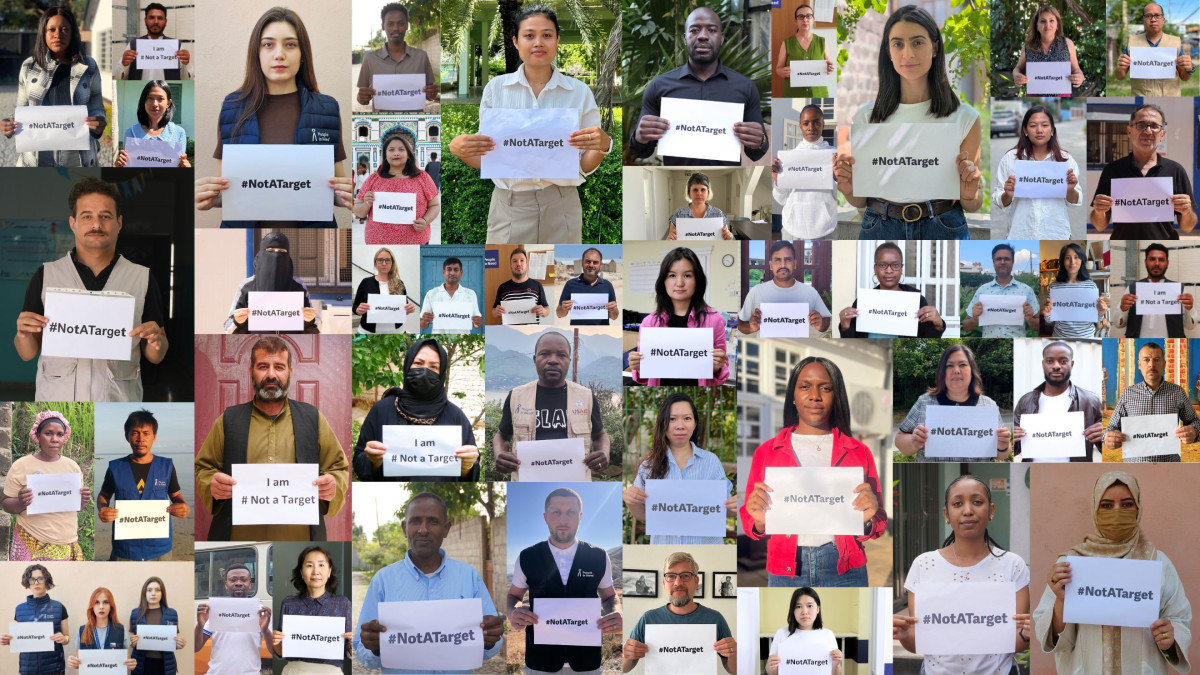Humanitarian Aid Work Has Never Been More Dangerous
Published: Aug 12, 2025 Reading time: 3 minutes Share: Share an articleHumanitarian aid workers are facing the deadliest period in history. They are being killed, wounded, and kidnapped in places like Gaza Strip, Sudan, and the Democratic Republic of Congo. Tragically, over 95% of the victims are national staff. Every year on World Humanitarian Day (19 August), we remember our fallen colleagues and honour all aid workers who risk their lives to support others.

Humanitarian workers help people affected by wars and natural disasters, yet they are now more at risk than ever before. In 2024 alone, 383 aid workers were killed. So far in 2025, we have already lost 248 colleagues worldwide. According to the Aid Worker Security Database, these incidents continue to increase, confirming that the world has never been more dangerous for those providing aid.
These are real people, not just statistics. Our staff around the world stands in solidarity with all of our colleagues who have paid the ultimate price for doing their job. Even wars have rules–humanitarian workers and civilians are #NotATarget.
Most casualties occur among national staff. Our colleagues who work directly within communities are most exposed, as major attacks often take place on roads and in public spaces.
We provide humanitarian and development aid in more than 20 countries. Of the 1,745 staff working in our country programmes last year, only 93 were international.
Recent trends show that aid workers are most frequently killed in crossfire, active combat, and aerial bombardments. Since the start of the conflict in Gaza Strip, over 1,580 health workers, more than 495 aid workers, and 229 journalists have been killed. Yet, threats to aid workers extend far beyond Gaza.
We work in some of the highest-fatality countries globally, with the top 10 including Afghanistan, Syria, Palestine, Sudan, and the DR Congo. Operating directly and through partnerships, we also currently work in nine out of the 18 countries identified by the ACAPS Humanitarian Access Overview as having "extreme" or "very high" access constraints, including four countries with extreme access challenges, such as Ukraine. In many cases, our national staff are living through the very crises they are working to resolve.
We have a demonstrated track record of delivering high-quality responses and adapting quickly in highly volatile, insecure environments. Our staff faces challenges head-on and looks for ways to deliver support in hard-to-reach and frontline areas, requiring solid security procedures while building trust, negotiating access, and establishing strategic partnerships with local actors.
Since 2012, six of our Syrian colleagues have been killed on the job. In June 2015, our organisation faced its greatest tragedy when nine Afghan colleagues were killed in an attack.
As a testament to their selfless dedication, our local colleagues remain committed to helping their fellow citizens, despite the profound risks.
World Humanitarian Day
On 19 August 2003, a bomb attack on the Canal Hotel in Baghdad, Iraq, killed 22 humanitarian aid workers, including the UN Special Representative of the Secretary-General for Iraq, Sergio Vieira de Mello. Five years later, the United Nations General Assembly adopted a resolution designating 19 August as World Humanitarian Day (WHD).



